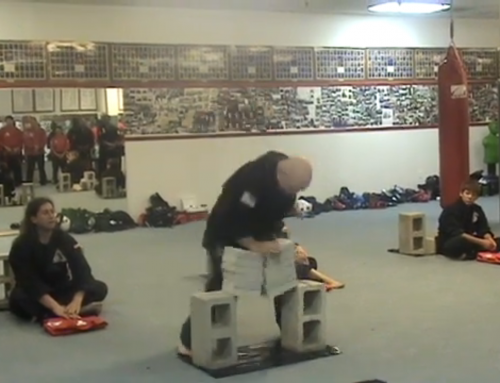One of the most impactful leadership experiences I ever had occurred while in the Navy. We had just gone through a change of command where the old Executive Officer (XO, the #2 officer in the squadron) was promoted to Commanding Officer (CO) and a new XO, George “Luke” Luechauer, had joined the squadron. During a training mission, Luke changed our tactics with terrible results. In spite of our strenuous objections, he had us fly the mission using an antiquated formation that left us vulnerable. Predictably, we had our “tails” handed to us and were badly humiliated by the aggressor squadron.
This was not the first time I had “lost” a fight while in training but what made this particularly aggravating was that, with the exception of the XO who had not been flying tactically for many years, the rest of us were extremely proficient and experienced and we had warned the XO that the formation he wanted us to use, was a bad idea. This was not a good introduction to our new XO. Needless to say, as my pilot and I walked back to the Ready Room to debrief after the failed, we were not happy. The squadron had a long history of being a top-performing squadron with great CO’s but it looks like that streak was about to end. We were not looking forward to the debrief, expecting Luke to hand us our tails for failing to acquire the bogeys on radar and allowing them to slip in behind our formation and “kill” us in record time. As the senior Radar Intercept Officer in the flight, the failure was predominantly mine.
When the debrief started, the first words out of Luke’s mouth were “well, I guess that didn’t work out so well. I suppose I should have listened to y’all.” We then proceeded to review then entire mission, from manning up the planes to shutting them down again, what we did right, what we did well and what could have been better. Luke’s last words at the close of the debrief were said as an aside, “I guess that’s the last time I’ll plan a mission, I think I’ll let y’all do it from now on”. None of us believed him. The general sentiment was that the next 3 years (the amount of time the XO was going to be in the squadron) were going to be difficult.
2-years later, when I left the squadron and the Navy, I regarded Luke as one of the best CO’s I ever had. I was not alone in that sentiment. What Luke did to change our minds was subtle, simple and effective.
First impressions are difficult to overcome, but Luke did. He did this by first owning his mistake and then keeping his word. There were actually many things Luke did over the course of his command that elevated his leadership but none of them would have been effective without these two.
We all know the value of keeping our word but what about admitting fault? As leaders don’t we want to appear confident and competent? Won’t our troops lose faith in us if we admit our faults? Simply put, no they won’t. There is a distinct difference between confidently making a decision in the heat of battle and owning our failures when debriefing the mission.
Mistakes are what make us great
Mistakes are a fact of life. Some of our greatest literature comes from stories about either suffering the consequences of mistakes or overcoming them. There are 3 major benefits of owning our mistakes.
- Strengthens the bond between you and your team – the more respect your team has for you the greater your ability to influence them. We respect people like us and team members want to be able to see themselves in you. When you admit to your mistakes, your team can see themselves in you, thus strengthening the bond between you and your team.
- Empowers your team members to take chances – By modeling a willingness to make mistakes, you give tacit permission for your team to take chances. Innovation and advances only come when we try new things, which is inherently risky. Owning your mistakes makes it OK for your team members to innovate by taking chances
- Provides an opportunity to learn – we learn best from our mistakes, not our successes. However, you can only learn from a mistake when you acknowledge it. Like sculpting from rock, we can only achieve our desired result by removing what doesn’t work. Acknowledging our mistakes, and therefore learning from them, allows us to identify what isn’t working and removing that behavior. What is left is what works.
This has been backed up by research. In a recent article in Behavioral Scientist, titled “Brag Wisely”, Alison Wood Brooks discusses how only talking about your accomplishments conveys Hubristic Pride to observers which leads to malicious envy. Malicious envy can result in unethical behavior and possibly the undermining of your leadership because team members hope for your failure.
However, according to Brooks, publishing your failures with your successes leads to benign envy. It demonstrates to your team members that you are flawed, and therefore human, like they are, which creates rapport and facilitates bonding. Furthermore, when juxtaposing your failures with your success, it can inspire your team by modeling how perseverance through failure can lead to success.
So admit your mistakes and advance your team to greatness!










